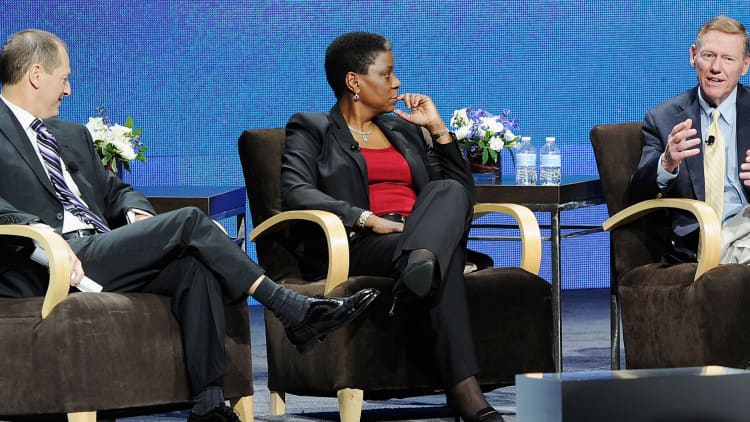Most feel-good stories come and go. Somebody does something wildly creative or uncommonly kind. Maybe both. We're impressed, but seldom do we hear about long term consequences. (When there's a follow-up, it's often because the tale turns out to be phony or it has a bitter conclusion.)
Yet once in a while, stories just keep getting better and better. This is one of them.
More from Michael Wheeler:
Are you ready to burn some bridges?
How to shut down an interrupter. Finally!
What you should learn from Shark Tank
Two summers ago I wrote here about Dan Price, a Seattle-based entrepreneur who set $70,000 as the minimum wage for each one of his employees. The post drew half a million views, the highest any of my fifty-plus posts has received. Most commentators applauded, but a few were critical. Several people called Price's action "socialistic."
That reaction struck me as weird, as Price was acting privately as the majority owner of his small credit card processing company, Gravity Payments. There was no government involvement at all.

Then a year ago, I wrote an update to report how things were going for Price and his company. There had been bumps in the road, notably a dispute with his brother who also held some Gravity stock. Two experienced employees quit, because their raises weren't as big as those for people lower on the scale. A few customers cut their ties, as well.
The upside, though, was far greater. The publicity landed Price many new customers. Revenue and profits went way up, plus Price was flooded with thousands of applications from talented job candidates.
Another year has passed, so now it's time to check in again. The news continues to be strongly positive on two different fronts. On the business side revenue continues to grow, as the company has rapidly expanded its customer base. The number of employees has climbed by 40 percent.
I recently asked Ryan Pirkle, Gravity's head of marketing, how it is that they prosper, in spite of their higher labor costs. "We don't compete solely on price," he said, (though they charge significantly less than the industry average.)
"We're old school," says Pirkle. "No robots. No telephone trees. Instead, real people are our infrastructure." The key to the company's success is a dedicated, engaged support team. When one of their customers—a restaurant, let's say—is having credit card problems on a busy Friday night, its manager will talk directly with a knowledgeable Gravity person who can solve their problem.
In the long run, it's not just a matter of landing more customers. Keeping them is the critical factor. And Gravity's retention rates are very high.
The news is also positive in another way. Price didn't set out to change the world. He and his colleagues understand that other businesses already operate on the margin, especially mom-and-pop operations.
Nevertheless other companies are taking note. Earlier this year, Forbes featured an interview with Megan Driscoll, CEO of Pharmalogics Recruiting. After hearing Dan Price speak, she was inspired her to bump the starting base pay of her employees by 33 percent. When Driscoll put her plan into effect in January 2016, her business had $6.7 million in revenue and 46 employees. Now the staff is 72 and she anticipates revenues of $15 million this year.
Driscoll can point to metrics that show that her people are working harder and smarter than before. After the pay raise, for example, there was a 32 percent increase in the number of qualified candidates her recruiters generated for clients.
And the company's own retention rate jumped from 40 to 84 percent. (Here's a link to a montage of Pharmalogics video clips that includes comments by Driscoll and her employees—plus a surprise visit from Price.)
Others are experimenting with alternative forms of compensation to foster productivity. Stephen Aarstol, CEO of Tower Paddleboards, felt he couldn't finance a pay raise, but he boldly cut the work day of his employees down to five hours. As a result, their focus and engagement skyrocketed—and with that, so did his business. Mark Cuban calls his own funding of Aarstol's business "one of my best Shark Tank investments."

Now, I'm not saying that every company should or can follow suit. I still wonder if this approach can be scaled up. But the way the story has resonated suggests that something is in the air. Wages in many industries have effectively been flat for decades.
There are concerns about productivity and the potential impact of automation on the job market. Why haven't we looked harder at employee motivation and engagement?
As Pulitzer Prize winning financial columnist Steven Pearlstein notes, it's curious that boards of directors implement elaborate compensation schemes for top level managers, but seemingly give little notice to the fact that money matters to all the people doing the day-to-day work.
Dan Price seems to be more willing to publicly challenge status quo thinking about wage policy. Earlier this year he cheerfully responded to skeptics at the Young Presidents Organization's 2017 Edge Conference. (The session was moderated by my HBS colleague, Mike Norton, who also has been tracking the Gravity story.)
If you have doubts yourself about the practicality and value of following Price's example, I encourage you to sample a video of his presentation here.
Michael Wheeler is a professor at Harvard Business School, teaching Negotiation and The Moral Leader, and the editor-in-chief of the Negotiation Journal.
Like this story? Like CNBC Make It on Facebook.
Don't miss: This simple chart will show you how close you are to becoming a millionaire


